
Serenity and Culture Along the Tutong River
The Tutong River, flowing gracefully through the heart of Brunei, offers an enchanting escape into nature and culture. This tranquil waterway is a hidden gem, perfect for those seeking a peaceful retreat. The river meanders through lush mangroves, pristine forests, and traditional villages, providing a scenic backdrop for a serene journey. As you glide along the river, you'll encounter the charming sights of local wildlife, including colorful birds and playful monkeys. The mangrove forests are a haven for nature lovers, offering a unique ecosystem to explore. Don't miss the chance to visit the quaint villages along the riverbanks, where you can experience the warm hospitality of the locals and learn about their way of life. One of the highlights of a trip to the Tutong River is the opportunity to witness traditional fishing methods and sample the fresh catch of the day. The river is also home to several cultural and historical sites, including ancient shrines and traditional longhouses. Whether you're an avid birdwatcher, a history enthusiast, or simply looking for a relaxing boat ride, the Tutong River promises an unforgettable experience.
Local tips in Tutong River
- Hire a local guide to enhance your experience with their knowledge of the area and its wildlife.
- Bring bug spray and wear long sleeves to protect yourself from insects, especially during evening trips.
- Visit during the dry season, from February to April, for the best weather and river conditions.
- Try to schedule your visit to coincide with local festivals for a more immersive cultural experience.
- Bring binoculars for birdwatching – the river is home to many rare and colorful species.
Serenity and Culture Along the Tutong River
The Tutong River, flowing gracefully through the heart of Brunei, offers an enchanting escape into nature and culture. This tranquil waterway is a hidden gem, perfect for those seeking a peaceful retreat. The river meanders through lush mangroves, pristine forests, and traditional villages, providing a scenic backdrop for a serene journey. As you glide along the river, you'll encounter the charming sights of local wildlife, including colorful birds and playful monkeys. The mangrove forests are a haven for nature lovers, offering a unique ecosystem to explore. Don't miss the chance to visit the quaint villages along the riverbanks, where you can experience the warm hospitality of the locals and learn about their way of life. One of the highlights of a trip to the Tutong River is the opportunity to witness traditional fishing methods and sample the fresh catch of the day. The river is also home to several cultural and historical sites, including ancient shrines and traditional longhouses. Whether you're an avid birdwatcher, a history enthusiast, or simply looking for a relaxing boat ride, the Tutong River promises an unforgettable experience.
When is the best time to go to Tutong River?
Iconic landmarks you can’t miss
The Empire Brunei
Experience the epitome of luxury at The Empire Brunei, where stunning views, exquisite dining, and world-class amenities await you.
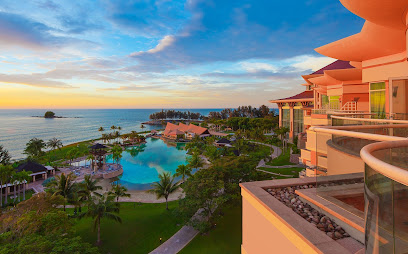
Omar Ali Saifuddien Mosque
Discover Brunei's iconic mosque: a stunning blend of Mughal and Italian architecture, shimmering golden dome, and serene lagoon setting.

Jame' Asr Hassanil Bolkiah Mosque
Discover Brunei's largest mosque, a dazzling display of Islamic architecture with 29 golden domes, serene gardens, and exquisite craftsmanship.
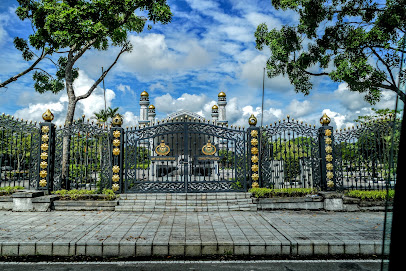
Istana Nurul Iman
Explore Istana Nurul Iman, the stunning Sultan's Palace in Brunei, showcasing opulence, history, and breathtaking architecture in a serene riverside setting.
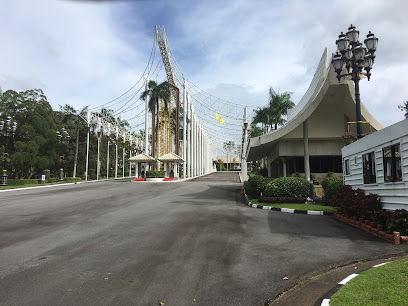
Jerudong Park Playground
Explore Jerudong Park, Brunei's premier amusement park, featuring thrilling rides, a water park, and beautiful gardens for a perfect family outing.

Kianggeh Market
Experience the rich culture of Brunei at Kianggeh Market, a vibrant hub for local delicacies and unique handicrafts.
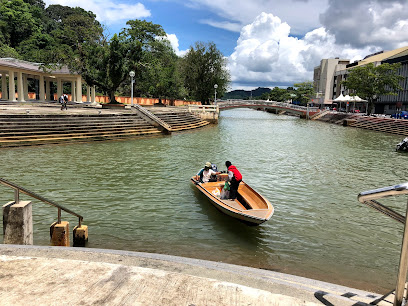
Billionth Barrel Monument
Explore the Billionth Barrel Monument in Seria, a striking landmark celebrating Brunei's rich oil heritage and economic transformation.
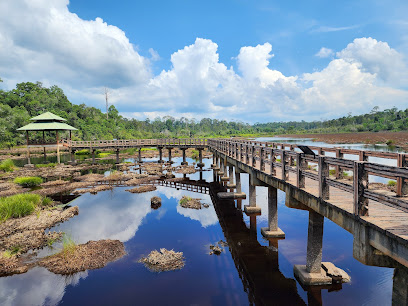
Tasek Lama Recreational Park
Escape to nature in the heart of Bandar Seri Begawan at Tasek Lama Recreational Park, offering trails, waterfalls, and diverse wildlife.
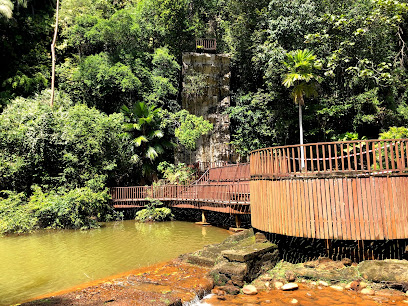
Ash Shaliheen Mosque
Discover Brunei's Ash Shaliheen Mosque: A stunning blend of Moroccan and Islamic architecture in a serene setting.
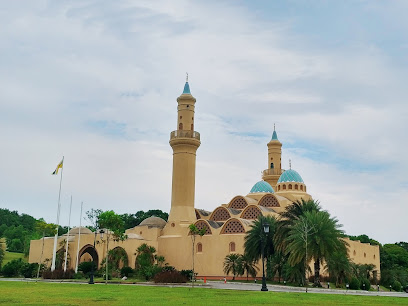
Raja Isteri Pengiran Anak Hajah Saleha Bridge
Discover Brunei's iconic cable-stayed bridge, offering stunning views and a glimpse into the nation's modern architectural achievements.
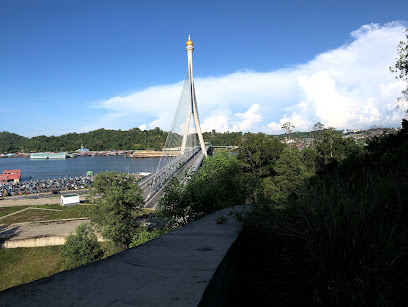
Taman Mahkota Jubli Emas
Discover a tranquil oasis in Brunei's capital, offering scenic riverfront views, lush gardens, and a blend of culture and recreation.
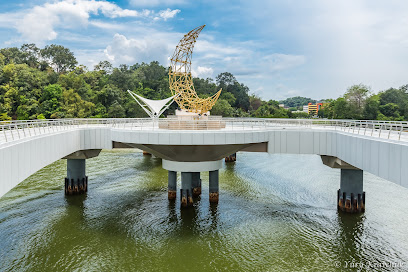
Taman Jubli Perak
Explore the serene beauty of Taman Jubli Perak, a lush park in Bandar Seri Begawan filled with cultural landmarks and natural tranquility.
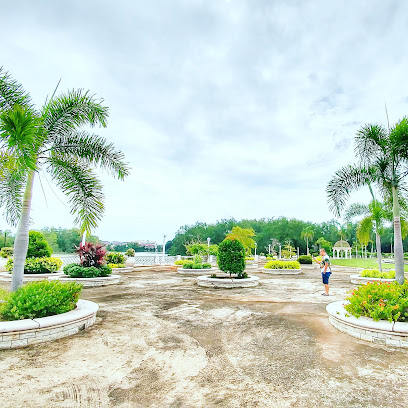
Labi Forest Reserve
Explore the breathtaking beauty of Labi Forest Reserve, a national forest in Brunei known for its lush landscapes and diverse wildlife, perfect for nature lovers.
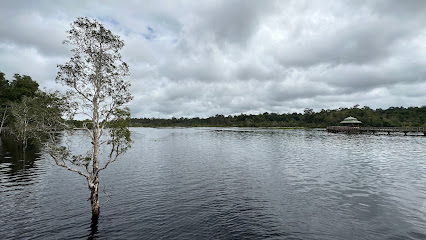
Damuan Recreational Park
Explore the lush landscapes and unique wildlife at Damuan Recreational Park, a serene escape in Bandar Seri Begawan for nature lovers and families.
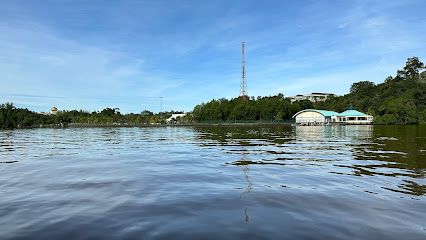
Balai Khazanah Islam Sultan Haji Hassanal Bolkiah
Explore the rich Islamic heritage of Brunei at Balai Khazanah Islam Sultan Haji Hassanal Bolkiah, a captivating heritage museum in Bandar Seri Begawan.
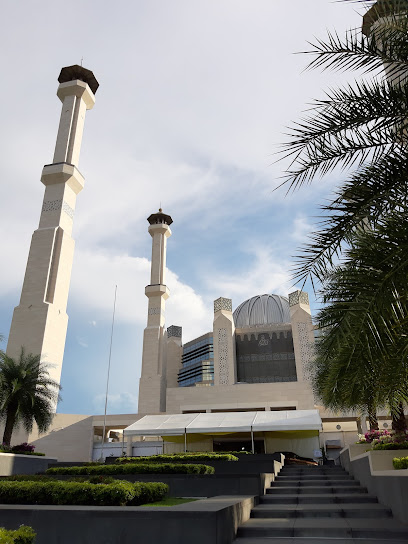
Unmissable attractions to see
Brunei Waterfront
Experience the tranquil beauty of Brunei Waterfront, a cultural gem in Bandar Seri Begawan offering stunning views and unique wildlife encounters.
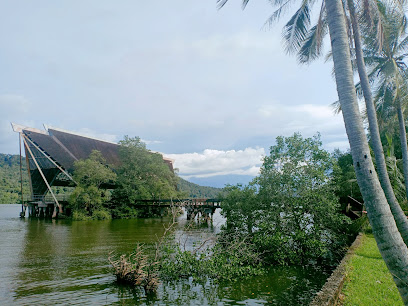
Wasai Wong Kadir Recreational Park
Experience the natural beauty and tranquility of Wasai Wong Kadir Recreational Park, a must-visit tourist attraction in Brunei.
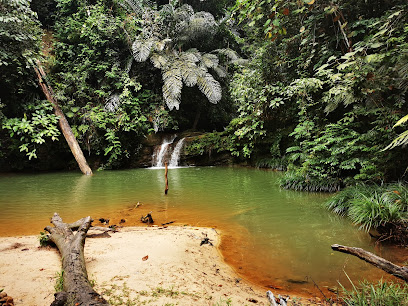
BIBD frame Brunei Darussalam
Explore the BIBD Frame, a modern architectural gem in Brunei Darussalam offering stunning views and cultural insights.
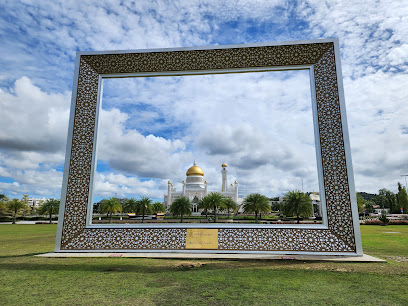
Tasek Merimbun Heritage Park
Explore the natural beauty of Tasek Merimbun Heritage Park, a serene national park in Long Mayan, perfect for nature lovers and adventure seekers.
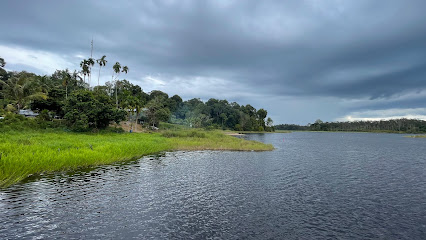
Bukit Subok Forest Reserve Recreational Park
Discover the serene beauty of Bukit Subok Forest Reserve, a tranquil park in Bandar Seri Begawan perfect for nature lovers and adventure seekers.
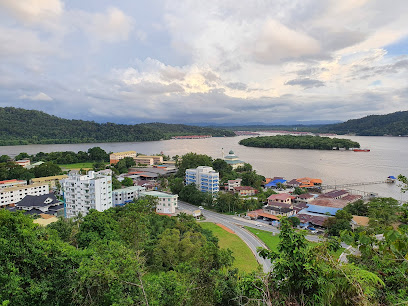
Tumpuan Telisai Recreational Park
Experience the beauty and tranquility of Tumpuan Telisai Recreational Park, a perfect getaway for nature lovers and families in Brunei.
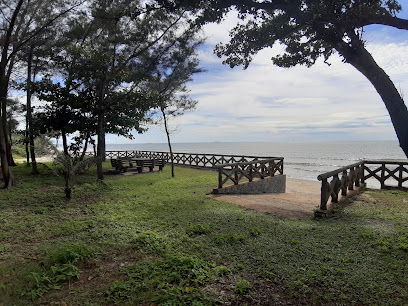
Tasek Lama Waterfall
Experience the tranquility of Tasek Lama Waterfall in Bandar Seri Begawan, a picturesque escape surrounded by lush greenery and serene landscapes.
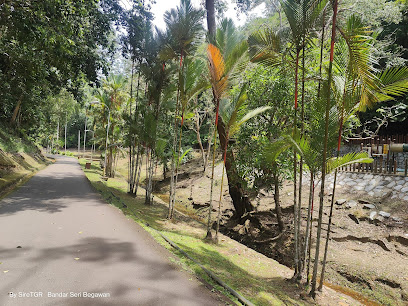
The Big Wall Brunei
Discover the artistic brilliance of The Big Wall in Brunei, where vibrant murals tell the story of culture and creativity in Bandar Seri Begawan.
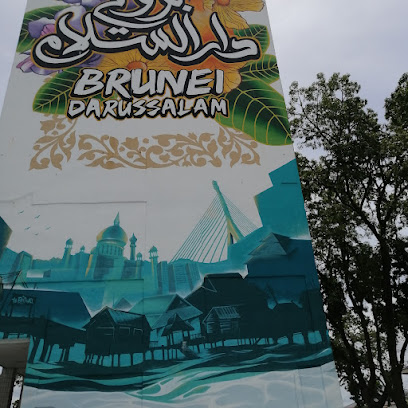
Ulu Temburong Canopy Walk
Experience breathtaking rainforest views from above at Ulu Temburong National Park's iconic canopy walk in Brunei.

Proboscis Monkey sightings
Experience the thrill of observing Proboscis monkeys in their natural habitat in Bunut Perpindahan, a unique wildlife destination in Borneo.
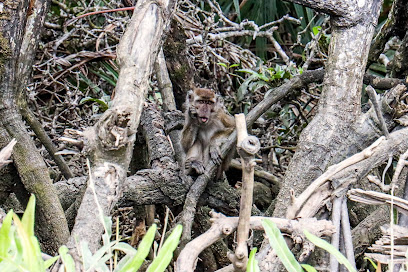
tanah ma'ang
Escape to the serene landscapes of Tanah Ma'ang Park in Bekiau, Brunei, for a tranquil retreat into nature's embrace.

Nong Kajang Hiking Trail Starting Point
Explore the breathtaking Nong Kajang Hiking Trail, a perfect escape into Brunei's stunning natural beauty and adventure.
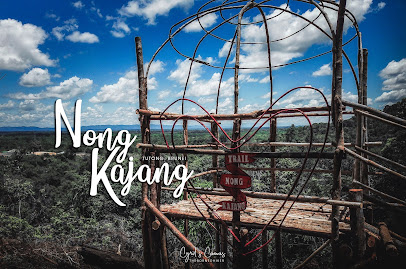
Delilah's Spot
Explore Delilah's Spot in Bandar Seri Begawan, a tranquil tourist attraction that showcases Brunei's stunning landscapes and rich cultural heritage.
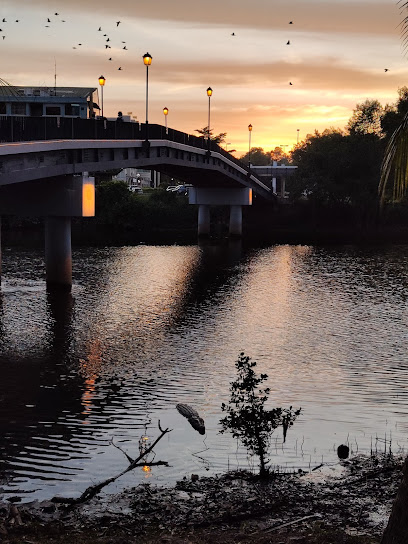
Labulicious Farm
Discover Brunei's agricultural heritage at Labulicious Farm: a serene escape into nature with fresh produce and sustainable practices in Kampung Merimbun.
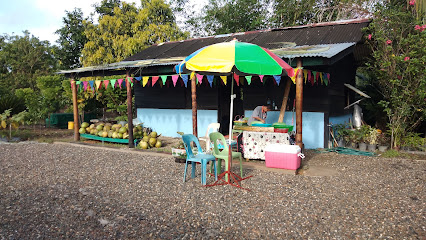
The Bajet place For Kreraf Kremmy Kreazmi
Discover a peaceful escape at The Bajet Place, a serene garden retreat in Kampong Keriam, showcasing Brunei's natural beauty.
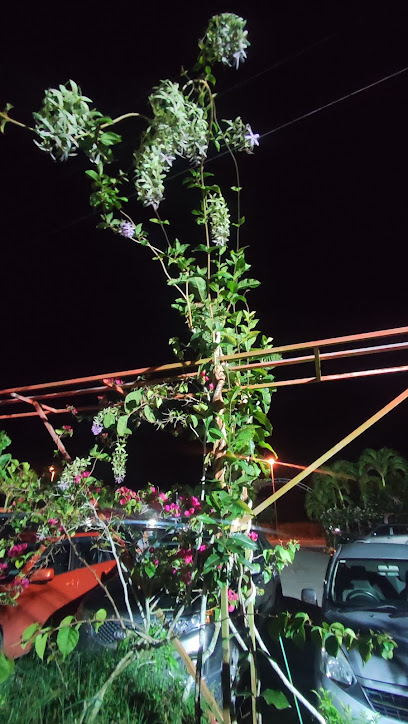
Essential places to dine
Haji K.K Koya Restaurant
Experience the vibrant flavors of India at Haji K.K Koya Restaurant in Tutong – where every meal tells a story.
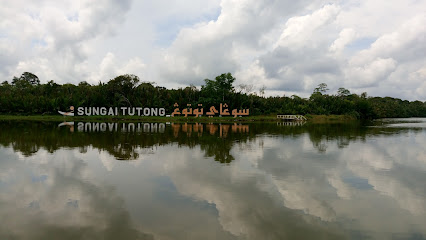
WYWY Restaurant
Discover the flavors of Brunei at WYWY Restaurant in Tutong - where culinary tradition meets modern dining.
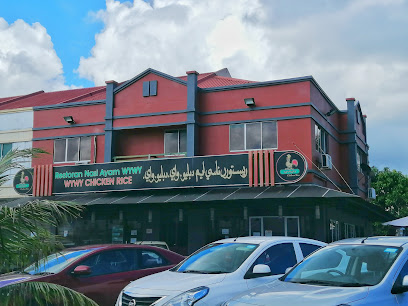
N-TRE Restaurant & Catering
Discover delicious flavors at N-TRE Restaurant & Catering in Tutong – where every meal is a celebration of taste and culture.
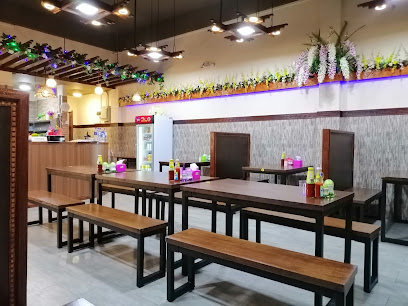
D baik restaurant
Discover authentic Bruneian cuisine at D Baik Restaurant in Tutong - where every dish tells a story.
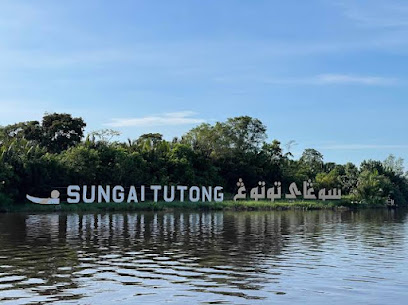
Firdous Restaurant &Cataring
Discover authentic Bruneian cuisine at Firdous Restaurant & Catering in Tutong – where every meal tells a story of flavor.
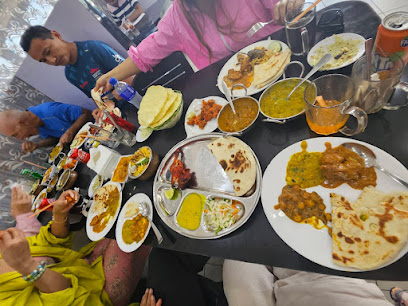
Bali Pit-Stop Restaurant
Experience authentic Indonesian cuisine at Bali Pit-Stop Restaurant in Tutong - where every dish tells a story.
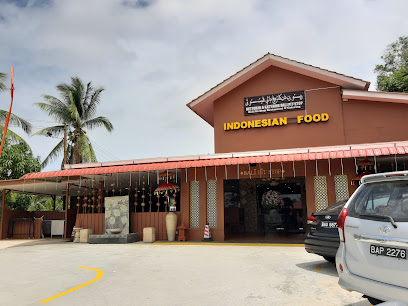
Al-Malabar Restaurant
Experience the best of Bruneian and international cuisine at Al-Malabar Restaurant in Tutong - where every meal is a celebration of flavor.
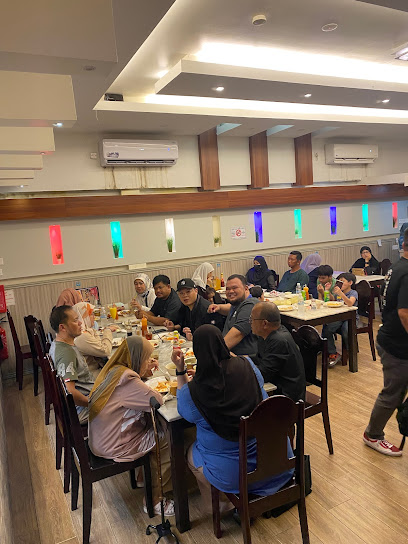
Ho Yuen Restaurant
Experience authentic Bruneian flavors at Ho Yuen Restaurant in Tutong - where every meal tells a story.
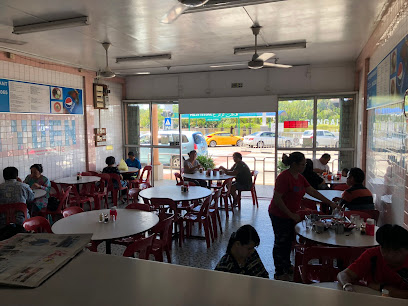
HomeTaste Steamboat Restaurant
Discover the vibrant flavors of Brunei at HomeTaste Steamboat Restaurant in Tutong – where fresh ingredients meet warm hospitality.
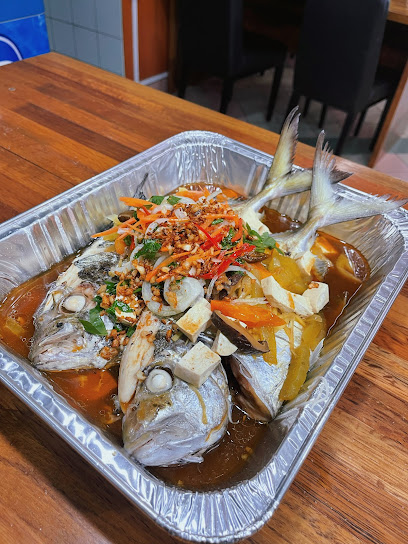
Al-Jashira Restaurant (Formerly Sanesha)
Experience authentic Bruneian flavors at Al-Jashira Restaurant in Tutong—where every meal is a celebration of local culinary traditions.
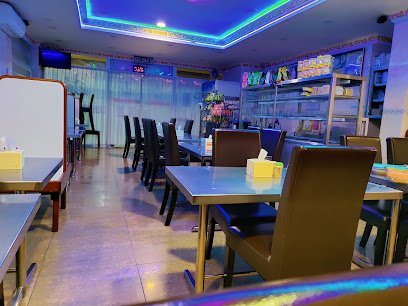
Ayamku Restaurant
Experience authentic Bruneian fast food at Ayamku Restaurant in Tutong, where flavor meets convenience in every bite.
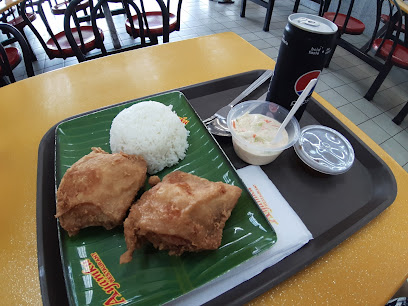
The Fisherman's Hut
Discover The Fisherman's Hut: A Seafood Gem on Pantai Seri Kenangan with Fresh Flavors and Stunning Ocean Views.
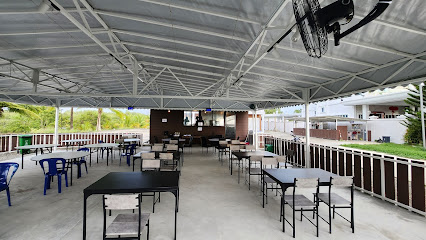
the Canteen
Experience the rich flavors of Asia at The Canteen in Tutong - where culinary tradition meets modern dining.
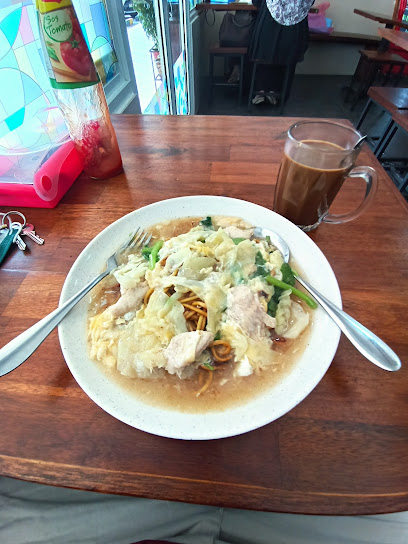
Big Mama's Restaurant Tutong
Experience authentic Asian cuisine at Big Mama's Restaurant Tutong - where every dish tells a story.
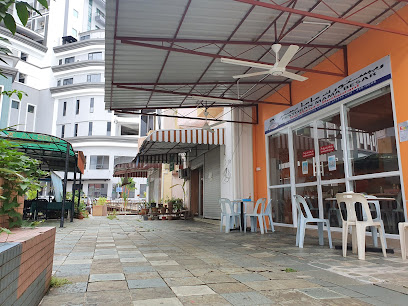
Restoran Al Habib
Experience authentic Bruneian cuisine at Restoran Al Habib in Tutong - where every dish tells a story.
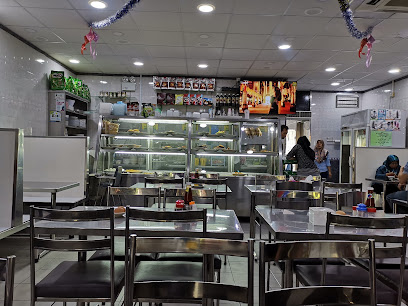
Markets, malls and hidden boutiques
Petani Mall
Explore Petani Mall in Tutong for a delightful shopping experience with a mix of local flavors, entertainment, and vibrant community spirit.
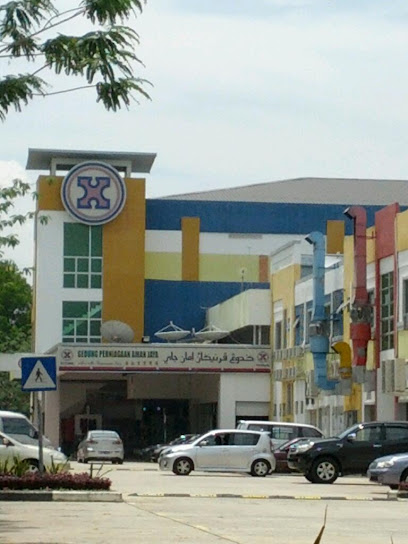
Hua Ho Department Store Tutong
Explore a world of shopping and local culture at Hua Ho Department Store Tutong, where every visit is a delightful experience.
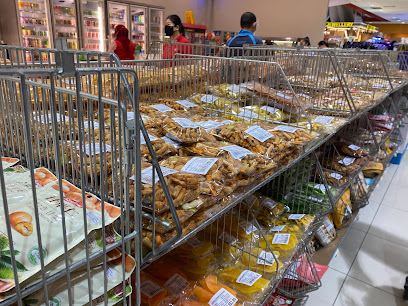
MR.DIY
Explore MR.DIY in Tutong for quality home improvement supplies at unbeatable prices, perfect for every DIY project and home upgrade.
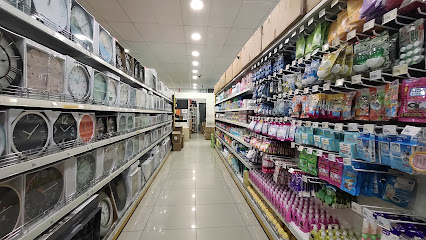
OKKY Jewellery - Tutong
Explore the exquisite collection at OKKY Jewellery in Tutong, where craftsmanship meets elegance in every piece.
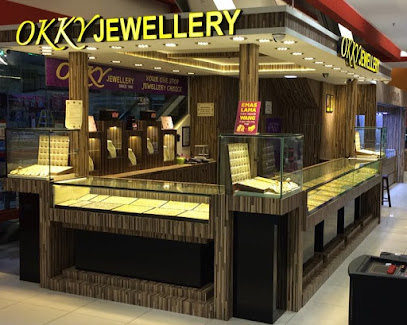
Rose Photo
Explore Brunei's beauty with high-quality photography at Rose Photo Studio - your ultimate destination for capturing unforgettable moments.
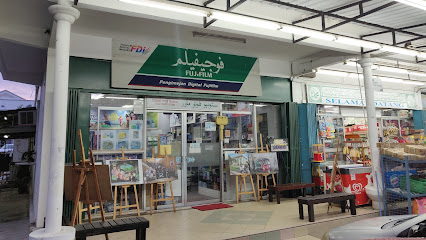
Sin Heng Lee Enterprise
Explore Sin Heng Lee Enterprise in Tutong for an eclectic mix of clothing, toys, bicycles, and more in a friendly shopping environment.
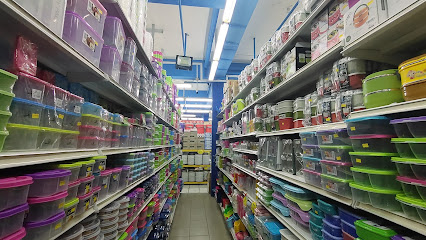
Cutepack
Explore Cutepack in Tutong for all your packaging needs, from takeaway boxes to unique household items, all in one convenient location.
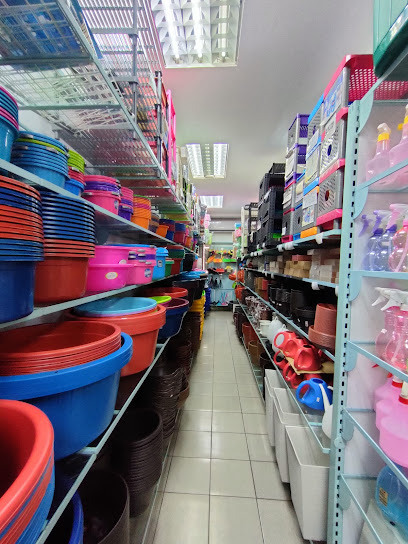
Soon Lee Mega Mart
Explore the vibrant offerings of Soon Lee Mega Mart, a supermarket in Tutong showcasing local delicacies and international favorites.
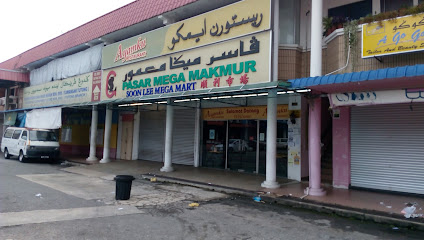
Sunil's Emporium
Explore the enchanting offerings of Sunil's Emporium, where local culture meets delightful shopping in the heart of Tutong.
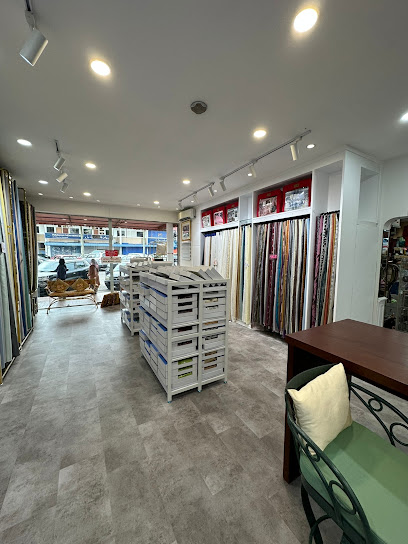
Milimewah Department Store
Discover the vibrant shopping scene at Milimewah Department Store in Tutong, offering everything from clothing to local goods at great prices.
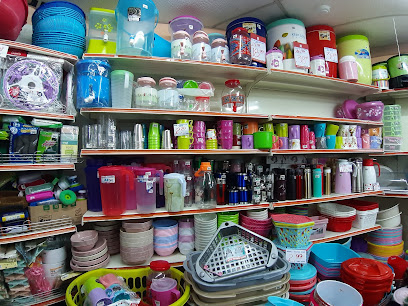
Ya-Nur Supermarket - Tutong
Explore local flavors at Ya-Nur Supermarket, a vibrant shopping destination in Tutong offering fresh produce and unique culinary delights.
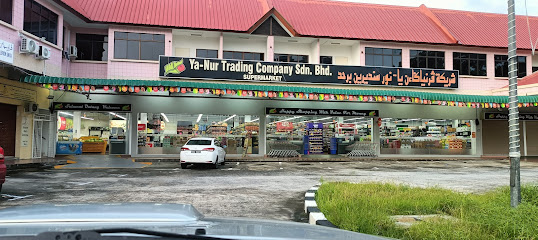
SKH Tutong
Explore SKH Tutong for a diverse shopping experience that captures the essence of local culture and everyday needs in Brunei.
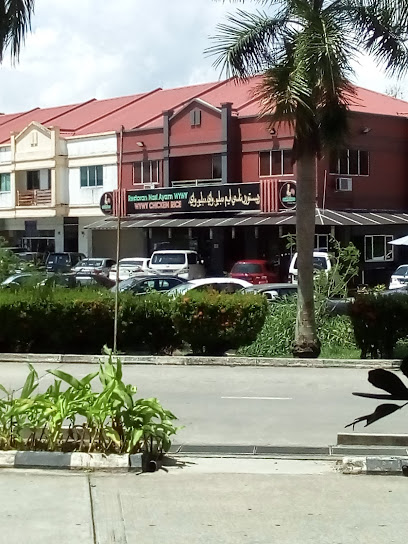
Al Bukhari Textile Brunei
Explore Al Bukhari Textile in Brunei for a rich selection of high-quality fabrics that celebrate the artistry of local craftsmanship.
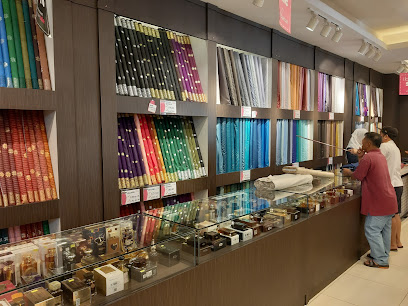
Court Pioneer Company - Tutong
Explore exquisite furniture crafted with care at Court Pioneer Company in Tutong, offering a wide range of quality pieces for every space.
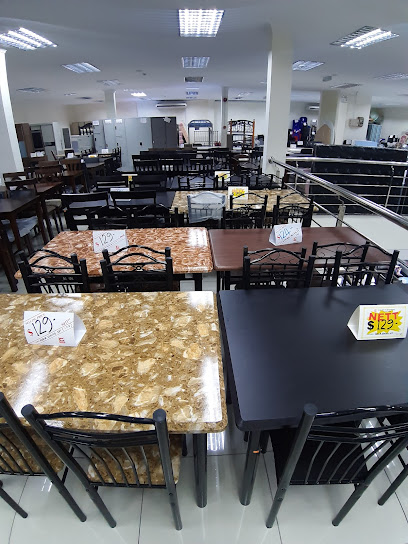
Mahamas Sdn bhd (Mini mart)
Experience the local culture and flavors at Mahamas Sdn Bhd Mini Mart, your go-to grocery store in Kampung Sengkarai, Tutong.
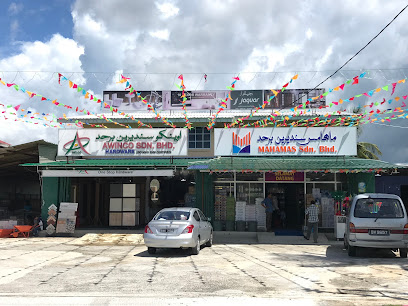
Essential bars & hidden hideouts
I Luv Cafe Bistro
Discover the taste of Tutong at I Luv Cafe Bistro, where delightful dishes meet a cozy atmosphere, perfect for any meal of the day.
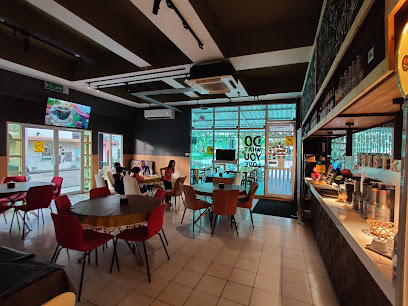
WYWY Restaurant
Discover the vibrant flavors of Brunei at WYWY Restaurant in Tutong, where culinary delights meet warm hospitality and diverse dining options.
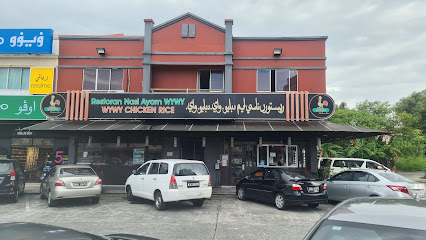
D baik restaurant
Experience authentic Bruneian cuisine at D Baik Restaurant in Tutong, where every dish tells a story of local culture and flavor.
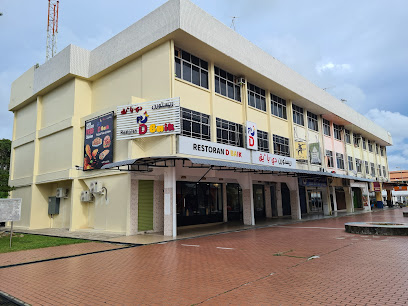
Bali Pit-Stop Restaurant
Experience the vibrant flavors of Indonesia at Bali Pit-Stop Restaurant, where every dish tells a story of culinary heritage.
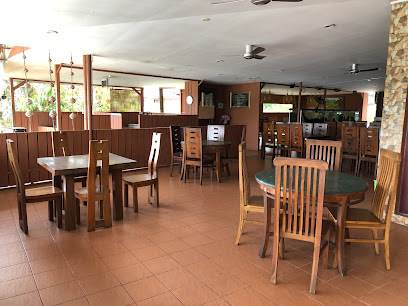
Al-Malabar Restaurant
Experience authentic Bruneian flavors at Al-Malabar Restaurant in Tutong, where tradition meets taste in a cozy dining atmosphere.
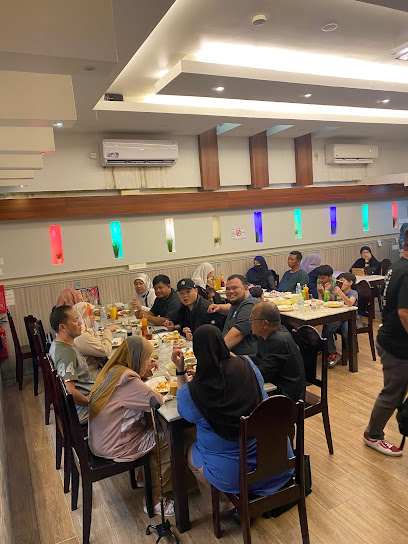
Ho Yuen Restaurant
Experience the best of Bruneian and Asian cuisine at Ho Yuen Restaurant in Tutong, where authentic flavors meet warm hospitality.
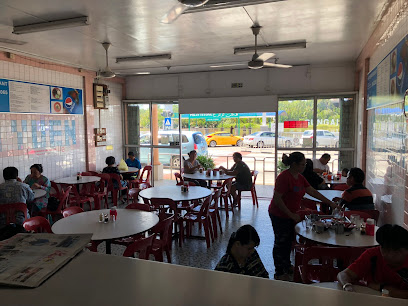
Al-Jashira Restaurant (Formerly Sanesha)
Discover the flavors of Brunei at Al-Jashira Restaurant, a delightful dining experience in Tutong that showcases authentic local cuisine.
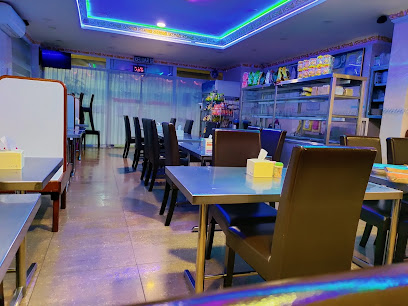
the Canteen
Experience authentic Asian flavors at The Canteen in Tutong, where culinary traditions come to life in a delightful atmosphere.
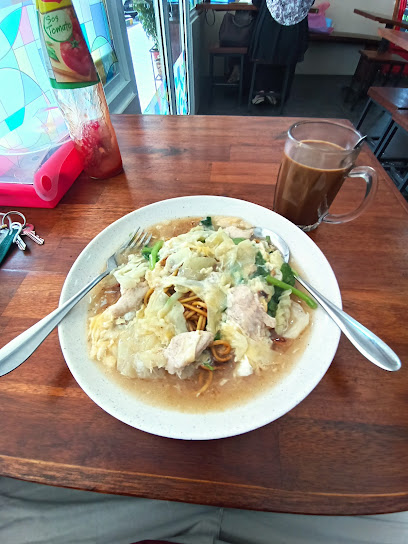
Food O’clock
Discover the delightful flavors of Brunei at Food O’clock, where local dishes and warm hospitality await your visit.
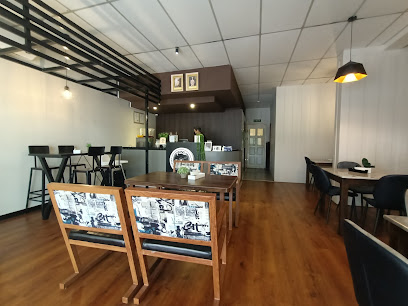
Bukit Bendera Cafe
Experience the authentic flavors of Brunei at Bukit Bendera Cafe in Tutong, where local cuisine meets a warm, inviting atmosphere.
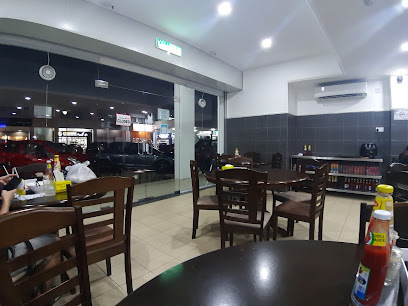
Q-Inn Restaurant, Tutong Branch
Discover the culinary treasures of Brunei at Q-Inn Restaurant, where local flavors meet international cuisine in a cozy atmosphere.
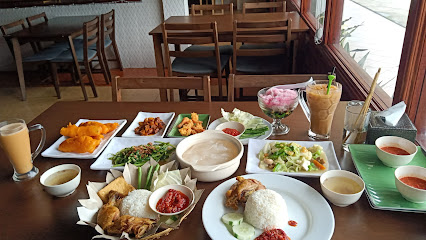
SHAM'S BBQ & GRILL TUTONG
Experience authentic barbecue flavors at SHAM'S BBQ & GRILL TUTONG, where every bite celebrates local culinary traditions.
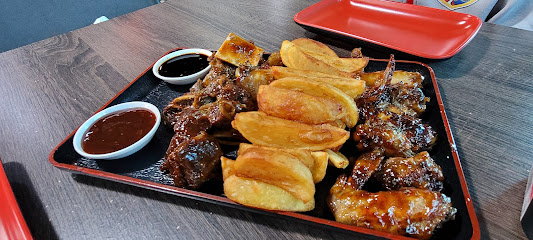
Puteh Restaurant
Discover the flavors of Brunei at Puteh Restaurant, where traditional cuisine meets warm hospitality in a cozy setting.
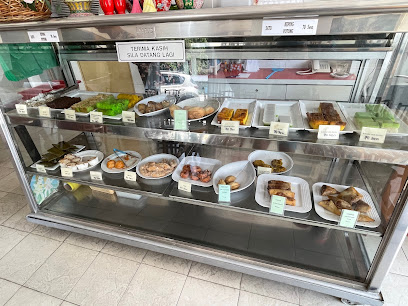
Fayze Restaurant
Discover the flavors of Brunei at Fayze Restaurant in Tutong, where every dish tells a story of local heritage and culinary artistry.
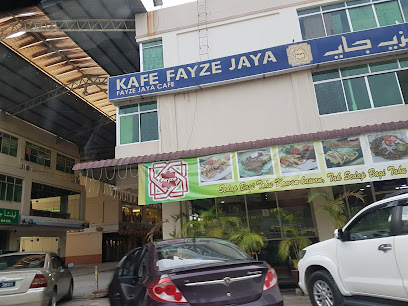
Local Phrases about Tutong River
-
- HelloSalam sejahtera
[sah-lahm say-jah-teh-rah] - GoodbyeSelamat tinggal
[suh-lah-maht ting-gahl] - YesYa
[yah] - NoTidak
[tee-dahk] - Please/You're welcomeSila
[see-lah] - Thank youTerima kasih
[teh-ree-mah kah-seh] - Excuse me/SorryMaaf
[mah-ahf] - How are you?Apa khabar?
[ah-pah kah-bahr] - Fine. And you?Baik. Dan awda?
[bah-eek. dahn ow-dah] - Do you speak English?Awda boleh bercakap Bahasa Inggeris?
[ow-dah boh-lay bur-cha-kahp bah-hah-sah ing-gah-rees] - I don't understandSaya tidak faham
[sah-yah tee-dahk fah-hahm]
- HelloSalam sejahtera
-
- I'd like to see the menu, pleaseSaya mau melihat menu, sila
[sah-yah mow meh-lee-haht meh-noo, see-lah] - I don't eat meatSaya tidak makan daging
[sah-yah tee-dahk mah-kahn dah-yee-ng] - Cheers!Tumpi!
[toom-pee] - I would like to pay, pleaseSaya ingin membayar, sila
[sah-yah in-geen mehm-bah-yahr, see-lah]
- I'd like to see the menu, pleaseSaya mau melihat menu, sila
-
- Help!Tolong!
[toh-long] - Go away!Pergi jauh-jauh!
[pehr-gee jow-jow] - Call the Police!Panggil polis!
[pahng-geel poh-lees] - Call a doctor!Panggil doktor!
[pahng-geel dohk-tor] - I'm lostSaya tersesat
[sah-yah tuhr-suh-saht] - I'm illSaya sakit
[sah-yah sah-keet]
- Help!Tolong!
-
- I'd like to buy...Saya ingin membeli...
[sah-yah in-geen mehm-beh-lee] - I'm just lookingSaya hanya tengok-tengok
[sah-yah hahn-yah tehn-gohk-tehn-gohk] - How much is it?Berapa harganya?
[beh-rah-pah har-gahn-yah] - That's too expensiveTerlalu mahal
[tehr-lah-loo mah-hahl] - Can you lower the price?Boleh kurangkan harga?
[boh-lay koor-ang-kahn har-gah]
- I'd like to buy...Saya ingin membeli...
-
- What time is it?Pukul berapa sekarang?
[poo-kool beh-rah-pah suh-kah-rahn] - It's one o'clockPukul satu
[poo-kool sah-too] - Half past (10)Setengah (sepuluh)
[suh-tuhn-gah (suh-poo-looh)] - MorningPagi
[pah-gee] - AfternoonPetang
[peh-tahng] - EveningMalam
[mah-lahm] - YesterdaySemalam
[suh-mah-lahm] - TodayHari ini
[hah-ree ee-nee] - TomorrowEsok
[eh-sohk] - 1Satu
[sah-too] - 2Dua
[doo-ah] - 3Tiga
[tee-gah] - 4Empat
[em-paht] - 5Lima
[lee-mah] - 6Enam
[eh-nahm] - 7Tujuh
[too-joo] - 8Lapan
[lah-pahn] - 9Sembilan
[suhm-bee-lahn] - 10Sepuluh
[suh-poo-looh]
- What time is it?Pukul berapa sekarang?
-
- Where's a/the...?Di mana...
[dee mah-nah] - What's the address?Alamatnya di mana?
[ah-lah-maht-nyah dee mah-nah] - Can you show me (on the map)?Boleh tunjukkan saya (atas peta)?
[boh-lay toon-jook-kahn sah-yah (ah-tahs peh-tah)] - When's the next (bus)?Bila yang seterusnya (bas)?
[bee-lah yang suh-teh-roos-nyah (bahs)] - A ticket (to ....)Satu tiket (ke ....)
[sah-too tee-keht (keh)]
- Where's a/the...?Di mana...
History of Tutong River
-
The Tutong River has been a cradle of civilization for centuries. Archaeological findings suggest that early Austronesian settlers established communities along its banks as early as 2,000 BCE. These ancient settlers relied on the river for sustenance, using it for fishing, transportation, and irrigation.
-
During the 15th and 16th centuries, the Brunei Sultanate rose to prominence, and the Tutong River played a critical role in its expansion. The river served as a vital trade route, linking the inland areas to the coastal regions and facilitating the exchange of goods such as spices, textiles, and precious metals. The river's strategic importance made it a focal point for the sultanate's economic and political activities.
-
In the late 19th and early 20th centuries, Brunei came under British protection, and the Tutong River witnessed significant changes during this period. The British established administrative posts and infrastructure along the river, including schools and clinics, which brought about modernization and development. This era also saw the introduction of rubber plantations, which became an essential part of the local economy.
-
The Tutong River region was not spared from the ravages of World War II. During the Japanese occupation of Brunei (1941-1945), the river was used for strategic military operations, including transportation of troops and supplies. Local communities faced hardships, and many were forced to flee their homes along the river. Post-war, the river became a symbol of resilience and recovery for the people of Tutong.
-
The Tutong River is deeply embedded in the cultural fabric of the local communities. The river is celebrated in numerous local legends and folklore, often depicted as a life-giving force and a protector of the people. Traditional events such as the 'Kaul Festival' are held along its banks, where rituals and ceremonies are performed to honor the river and seek blessings for bountiful harvests and protection from natural calamities.
-
In contemporary times, the Tutong River continues to be a vital part of Brunei's natural heritage. Efforts have been made to preserve its ecological balance and promote sustainable tourism. The river is a popular destination for eco-tourism activities such as river cruises, bird watching, and fishing, attracting visitors who are eager to experience its serene beauty and rich history.
Tutong River Essentials
-
Tutong River is located in the Tutong District of Brunei. The nearest international airport is Brunei International Airport in Bandar Seri Begawan, approximately 50 kilometers away. From the airport, you can take a taxi or rent a car to Tutong. The journey typically takes about an hour by road. Alternatively, you can use public buses that connect Bandar Seri Begawan to Tutong at regular intervals.
-
Transportation within the Tutong River area includes local taxis, which are readily available and relatively inexpensive. Public buses operate within the district and connect to nearby towns and villages. Renting a car is also a convenient option if you wish to explore the area at your own pace. Cycling is another popular way to get around, especially for those who enjoy outdoor activities.
-
The official currency in Brunei is the Brunei Dollar (BND). Credit cards are accepted in most hotels, restaurants, and shops, but it is advisable to carry some cash, especially when visiting smaller establishments or rural areas. ATMs are available in Tutong town, but it is wise to withdraw sufficient cash before venturing into remote areas.
-
Tutong River is generally a safe destination for tourists. However, standard precautions should be taken, such as avoiding walking alone at night in unfamiliar areas and keeping an eye on your belongings in crowded places. There are no specific high-crime areas targeting tourists, but staying vigilant is always recommended.
-
In case of emergency, dial 991 for immediate assistance. The local police station and medical facilities are available in Tutong town. It is recommended to have travel insurance that covers medical emergencies. For minor health issues, there are pharmacies in the town where you can purchase over-the-counter medications.
-
Fashion: Do dress modestly, especially when visiting religious sites. Avoid wearing revealing clothing. Religion: Do respect local customs and traditions. Always cover your head when entering mosques. Public Transport: Do be respectful and give up your seat to elderly passengers. Don't eat or drink on public transport. Greetings: Do greet people with a handshake. A slight bow of the head is also a sign of respect. Eating & Drinking: Do try local delicacies and accept food offerings graciously. Don't refuse hospitality, as it is considered impolite.
-
To experience Tutong River like a local, visit the local markets where you can buy fresh produce and traditional Bruneian goods. Engage with locals, as they are often friendly and willing to share stories about the area's history and culture. Don't miss exploring the natural beauty of the Tutong River, including boat rides and fishing opportunities. For a unique experience, try participating in a local cultural event or festival.
Trending Landmarks in Tutong River
-
The Empire Brunei
-
Omar Ali Saifuddien Mosque
-
Jame' Asr Hassanil Bolkiah Mosque
-
Istana Nurul Iman
-
Jerudong Park Playground
-
Kianggeh Market
-
Billionth Barrel Monument
-
Tasek Lama Recreational Park
-
Ash Shaliheen Mosque
-
Raja Isteri Pengiran Anak Hajah Saleha Bridge
-
Taman Mahkota Jubli Emas
-
Taman Jubli Perak
-
Labi Forest Reserve
-
Damuan Recreational Park
-
Balai Khazanah Islam Sultan Haji Hassanal Bolkiah
Nearby Cities to Tutong River
-
Things To Do in Jerudong
-
Things To Do in Seria
-
Things To Do in Bandar Seri Begawan
-
Things To Do in Bangar
-
Things To Do in Kuala Belait
-
Things To Do in Muara
-
Things To Do in Miri
-
Things To Do in Kota Kinabalu
-
Things To Do in Sandakan
-
Things To Do in Kuching
-
Things To Do in Palawan
-
Things To Do in Balikpapan
-
Things To Do in Puerto Princesa
-
Things To Do in Zamboanga City
-
Things To Do in Mui Ne






